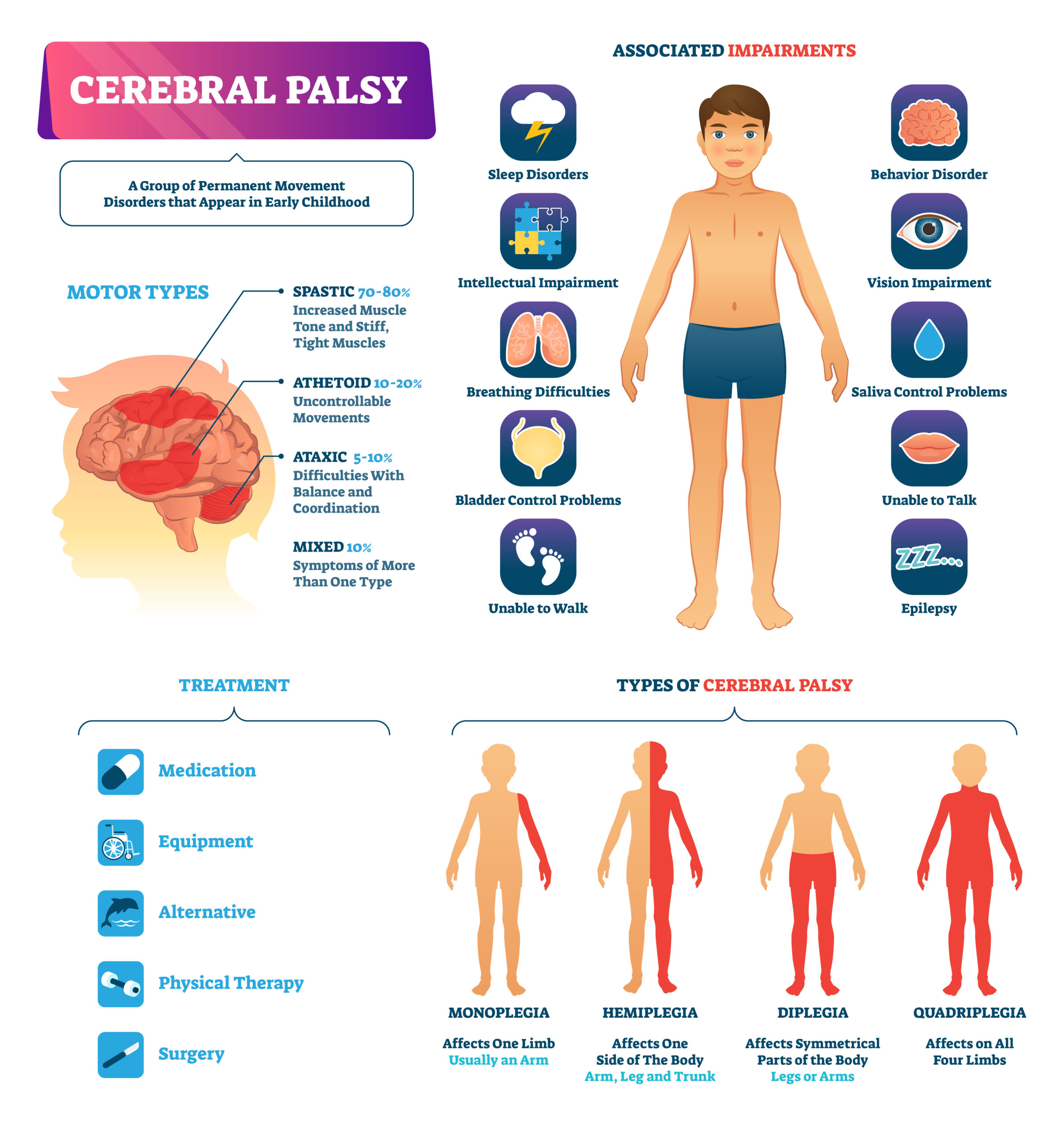Unlocking Potential: Physiotherapy as a Cornerstone in Cerebral Palsy Treatment
Cerebral Palsy (CP) is a neurological disorder that affects muscle coordination and body movement, often stemming from damage to the developing brain. While there is no cure for CP, various interventions can significantly improve the quality of life for individuals living with this condition. Among these interventions, physiotherapy stands out as a key player in addressing motor challenges and enhancing overall functional abilities.

1.I. Understanding Cerebral Palsy:
A. Definition and Causes
B. Types and Severity
C. Impact on Motor Skills and Daily Life
2.II. The Role of Physiotherapy in Cerebral Palsy Treatment:
A. Early Intervention 1. Importance of Early Diagnosis 2. Early Physiotherapy Intervention Benefits
B. Tailored Treatment Plans
1. Comprehensive Assessment
2. Goal Setting and Customization
C. Addressing Motor Function Challenges
1. Muscle Strengthening
2. Range of Motion Exercises
3. Balance and Coordination Training
D. Adaptive Equipment and Assistive Devices
1. Assistive Technology Integration
2. Gait Training and Mobility Aids
E. Improving Quality of Life
1. Pain Management
2. Enhancing Independence in Daily Activities
III. The Therapist-Patient Partnership:
A. Building Trust and Rapport
B. Ongoing Assessment and Adjustments
C. Collaborating with Other Healthcare Professionals
IV. Parental Involvement and Home Exercises:
A. Educating Parents on CP and Physiotherapy
B. Empowering Parents to Support Therapy at Home
C. Monitoring Progress and Celebrating Achievements
V. Technological Advancements in Physiotherapy for CP:
A. Virtual Reality Rehabilitation
B. Robotics and Exoskeletons
C. Biofeedback Technology
VI. Success Stories and Testimonials:
A. Real-life Experiences of Individuals with CP
B. Achievements Through Physiotherapy
VII. Challenges and Future Directions:
A. Accessibility to Physiotherapy Services
B. Research and Innovation in CP Treatment
C. Advocacy for Inclusive Healthcare Policies
Conclusion:
Physiotherapy serves as a beacon of hope for individuals with Cerebral Palsy, offering a holistic approach to address the unique challenges they face. Through personalized treatment plans, early intervention, and ongoing support, physiotherapists play a pivotal role in unlocking the potential of individuals with CP, allowing them to lead more fulfilling lives. As we continue to advance in understanding and treating Cerebral Palsy, the collaboration between healthcare professionals, individuals with CP, and their families remains essential for a brighter and more inclusive future.
